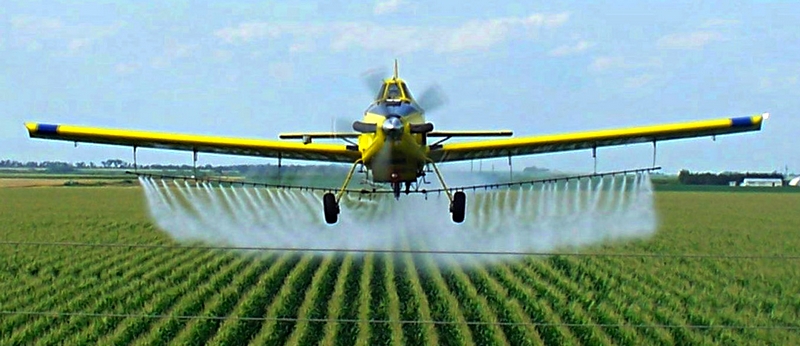Scientists at Harvard University have confirmed that those eating food with most pesticides left in it have around a 50% lower sperm count (Fruit and veg pesticides may harm male fertility, 31 March). A major research study by Newcastle University published last year found not only that organic fruit and veg contains more beneficial nutrients, but also four times less pesticide residues. It has been a bad few days for pesticides. Monsanto’s ubiquitous weedkiller, Roundup, was previously claimed by the pro-pesticides lobby to be “safe enough to drink”, until one of them was offered a cup during a recent interview, which he refused to drink, adding “I’m not stupid”. This was after the World Health Organisation’s International Agency for Research on Cancer declared that the chemical in Roundup, glyphosate, “probably is carcinogenic to humans”. Glyphosate is one of the most commonly found herbicides in UK food, according to government monitoring, and most cereal crops are sprayed with it just before harvest. As a result it frequently turns up in our bread, where no amount of washing will get rid of it.
The latest Harvard research did not look at the impact of eating organic food, but earlier Danish research, published in the Lancet, found that organic farmers had double the sperm density of three other groups (metal workers, printers and electricians). That research also found organic farmers had sex more frequently than the other groups, but that may have more to do with the joy and exuberance of life as an organic farmer rather than avoiding pesticides.
Peter Melchett
Policy director, Soil Association
• I read with interest George Monbiot’s article on soils (Opinion, 25 May). On our farms here in the UK, we do take the soil as the most important part of our system – it is essential. My farm has indications of settlement over the last 2,000 years, so I know that my tenure is only a snapshot in the life of the farm and it is vital I farm as well as I can for the future. Articles like Mr Monbiot’s do little to bring about change, as they fail to demonstrate a good understanding of the reality on the ground. Through initiatives like the Campaign for the Farmed Environment, farmers are making good progress in sustainability, which should be celebrated. We are fed up of taking the blame.
As to the soils directive, don’t be fooled just because something has a snappy title and a laudable aim that all regulation is the right approach. Last year, after eight years of discussion and negotiation, the European commission withdrew the proposed draft text. In fact, plenty of regulation has the opposite effect, tying up farming in bureaucracy rather than giving the freedom to be active outside.
Richard Bramley
Kelfield, Yorkshire
guardian.co.uk © Guardian News & Media Limited 2010
Published via the Guardian News Feed plugin for WordPress.


